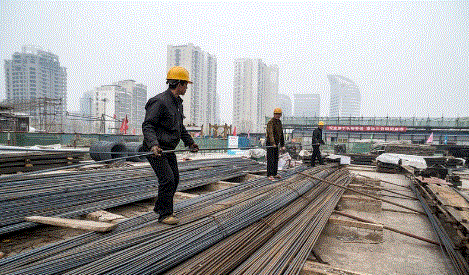Iron ore futures continued the downward trend on lower than expected steel demand and falling steel prices.
The most-traded iron ore for January 2021 delivery on China’s Dalian Commodity Exchange dropped further by 2.71% day-on-day to RMB 790 per tonne on Thursday.
The steel rebar contract on the Shanghai Futures Exchange however stayed more flattish and spotted a small dip of 0.28% day-on-day to RMB 3,577 per tonne.
Lower rebar prices over slow construction demand
Trade participants were concerned over lower construction demand as Chinese rebar prices continued to fall throughout the week.
For instance, Mysteel assessed the price of HRB 400 20mm dia rebar at RMB 3,806/mt as of 16 Sep, down RMB 17/mt day-on-day.
The price decline reflected poor construction steel sales from lower-than-expected growth in China’s real estate and infrastructure developments over the Jan-Aug period.
During the first eight month of the year, the country’s new land leases recorded 119.5 million sq m, down 2.4% year-on-year over the Jan-Aug 2020 period.
Meanwhile, the property sales of commercial and residential sector also dropped by 3.3% year-on-year to about 985 million sq m for January-August, according to National Bureau of Statistics.
Higher stock build-up for upcoming weeklong holidays
Meanwhile, Chinese steel mills had increased their restocking for imported iron ore sintering fines over the Sep 10-16 period.
According to Mysteel, the Chinese steel mills’ iron ore stock reached 17.7 million tonnes for the week ended on Sep 16, up 5.4% week-on-week and ended a four-week decline of stocks.
Apparently, the Chinese mills are replenishing stocks to prepare for the upcoming National Day holidays that started in the first week of October.
In the meantime, the steel stocks among Chinese traders dipped for second week to 22.85 million mt over Sep 11-17 period, down 0.7% or 168,500 mt week-on-week.
The traders’ steel stocks consisted of rebar, wire rod, hot-rolled coil, cold-rolled coil and medium plate.
And the lower steel inventory was attributed to the good automobile sales in China, which usually peaked in Sep-Oct period and was boosted by a series of government policies such as tax cuts on new vehicle sales.
